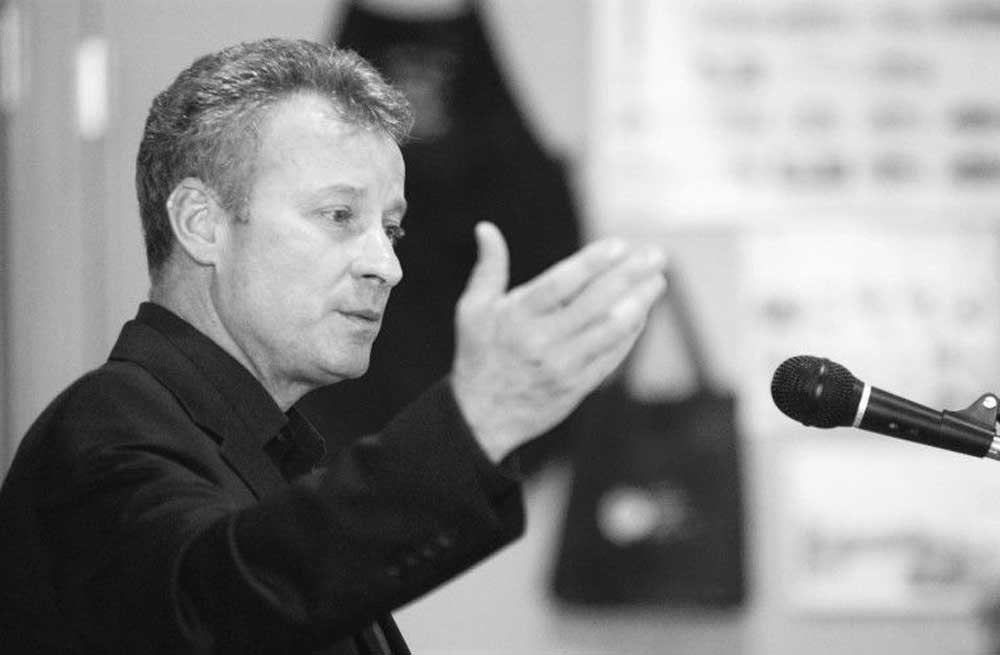Column: The lapsed Catholics are listening
Published 5:00 pm Tuesday, May 27, 2014

- Timothy Egan
Just days before he got the diagnosis of the cancer that would kill him in 2011, Christopher Hitchens was flinging word bolts at pilgrims while promoting his book God Is Not Great.
After his presentation, I asked him why, given that so few Americans self-identify as atheists, his book had found such a large audience.
Dear boy, said the British-born provocateur, wit and world-class polemicist, you do know that the fastest growing religious category is people who say they dont believe in any organized religion?
I did not know. But a slew of recent surveys back him up. Following the near-Godless Europeans, Americans are more secular than ever before. In a Pew poll, one in five describe their preference as no religion the Nones. For young people, its nearly one in three. Flooding their ranks are many of the 20 million lapsed Catholics. All of these are high-water marks.
This mega-trend would have seemed as irreversible as a sunset until a 76-year-old cardinal from Argentina was named leader of the worlds 1.2 billion Roman Catholics in March. That the pope would take the name of Francis the 12th-century mystic, nature lover and friend of the dispossessed was the first shock. Since then, the seismic waves have just kept on rolling.
Pope Francis has shown himself to be a free spirit and a free thinker. He loves the music of Mozart, the paintings of Chagall, the films of Fellini. He tweets. He talks to atheists. He stays out of politics. He calls for the faithful to mess up the church. He doesnt moralize or sermonize, and famously said, when asked about gays, Who am I to judge? Is this pope Catholic?
Francis has befuddled the guardians of dogma and medieval sexual doctrines who have long kept sunlight out of the Vatican. He is gasp a liberal. Or at the least, as he said, I have never been a right winger. But to put him in those restrictive political terms does a disservice to the quiet revolution of Pope Francis.
Its long been known that most North American and European Catholics ignore church teachings on gays, contraception and abortion. These teachings range from absurd to unscientific to outright hateful. Without specifically changing the official line, Francis prompted millions of Catholics to give the church a second look when he criticized the hierarchy for being obsessed with those issues. Amen, said nearly 70 percent American Catholics who agreed with him in a Quinnipiac poll.
The anecdotal reaction is equally intriguing. People come up to me all the time on the street or at a restaurant and say things like, I just need to tell someone how much I like this pope of yours, said Father Stephen Sundborg, a Jesuit (like Francis) who is president of Seattle University, based in one of the most secular cities in the United States. Suddenly, it seems OK to be a priest out there.
All of this is by design. Francis is working two broad strategies. The first is aimed at lapsed Catholics, and those who are open to a spiritual life with an intellectual framework. Thus, he dismissed proselytizing as solemn nonsense, in a recent interview. It makes no sense, he said of the blunt harangues over whose God is better.
The Jesuits have always tried to get people to think for themselves, to arrive at belief through an arduous process. When bishops started telling parishioners that their gay and lesbian siblings were sinners, and that family planning was a grievous wrong, people stopped listening to them for good reason.
In terms of people in the pews, the Catholic Church lost roughly one-fourth of its strength over the last 35 years, wrote the political scientists Robert Putnam and David Campbell in their book American Grace. They argue that when the religious right politicized faith, they put a not welcome sign on the door for millions of people of faith. This was compounded by the hypocrisy of these same moral authorities protecting pedophile priests while ignoring the lifelong anguish of the victims. For much of the 20th century, the Catholic Church in places was essentially organized crime in clerical garb.
The spirituality of Pope Francis, like his namesake from Assisi, is by example. Shedding the glam trappings of power and the aura of invincibility, he lives in a spartan guesthouse, mixes with the folks and tries to give voice to the sick, the poor, the immigrant living in the shadows. He washes the feet of prisoners, and Muslim ones at that. He laments that worshiping the god called money makes for bankrupt human beings.
The church he envisions would be a home for all, not a nest protecting our mediocrity. Its strong stuff, long overdue and as refreshing as a brisk wind blowing down from the Dolomites.
His second strategy is aimed at the hardened heart of the church inside Vatican Square the curia. He has summoned the cardinals for discussions on how to reform the church, the role of women and posture toward divorced Catholics. One goal is to remove the adjective scandal-plagued from curia.
No fancy cars, he admonishes the high clerics. Clean up the Vatican bank. The word monsignor, which means my lord, is out for elites. And enough with the interminable and boring homilies where no one understands anything. If that werent enough, he went after the cult of power: Heads of church have often been narcissists, flattered and thrilled by their courtiers.
The only problem with Francis is his age. If he were 50, he might have a quarter-century to move his church up several centuries in enlightened thinking. His time is short. But what a miraculous sprint, producing this minor miracle: the lapsed are listening.
Pope Francis has befuddled the guardians of dogma and medieval sexual doctrines who have long kept sunlight out of the Vatican.





